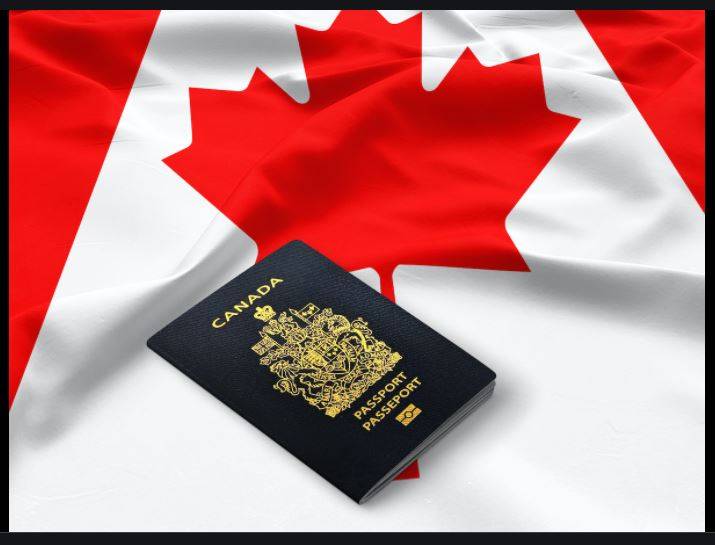How to Apply for a UK Visa to move to the UK

Every year, a lot of people travel to the United Kingdom for a variety of reasons, including touring, learning, and even working. If you are traveling to the United Kingdom for school, tourism, business, or to live and work, you will need a visa. The application process for a UK visa might take up to a month, and you can apply 3 months ahead. Here’s a step-by-step guide to making your UK visa application go smoothly.
A UK visa is a document that allows people from all over the globe to arrive, stay briefly, or live permanently in the United Kingdom. A visa is typically a stamp in your passport or a document issued by a British consulate or embassy in your home country.
If you are granted a visa, it indicates that you are eligible to enter the United Kingdom and that you meet the requirements of the visa.
Before you proceed, you need to know if you need a UK visa. If you’re a citizen of the EU, EEA, or Switzerland, you may not need to apply for a visa if you’re visiting the UK for a short business trip. You can continue to enter the UK without requesting for a visa under the UK’s new points-based immigration system. You can typically stay for up to 6 months. You are welcome to engage in a variety of activities, including business-related events, seminars, and conventions. You are permitted to enter the UK several times throughout that time period, but you are not permitted to remain in the UK as a result of prolonged or consecutive visits. Similarly, EU, EEA, and Swiss citizens do not require a visa to visit the UK for holidays or short visits. You can access the UK border with a valid passport that is valid for the duration of your stay in the country.
On arrival, EU, EEA, and Swiss citizens can utilize the automatic ePassport gates to go through the checkpoint.
You cannot enter the UK with an EU, EEA, or Swiss national ID card unless you: have resolved status under the EU Settlement Scheme, or have an EU Settlement Scheme family permit, or the equivalent from Jersey, or have settled or pre-settled status under the settlement schemes of Jersey, or Guernsey.

Types of UK Visa
There are different kinds of UK Visa, depending on what you want to do in the UK.
Work Visa
A Skilled Worker visa allows you to go to the UK and work for an approved organization in an eligible job. To be eligible for a Skilled Worker visa, you must meet the following requirements:
- Work for a UK employer who has received Home Office approval
- Obtain a ‘certificate of sponsorship’ from your company detailing the role you have been given in the United Kingdom
- Work in one of the jobs on the list of those who are eligible.
- Be paid a minimum wage, the amount of which varies depending on the type of job you engage in.
Before you need to extend your visa, it can last up to 5 years. When your visa expires or if you switch employment or employers, you will need to apply to renew or modify it. You can apply for a visa extension as many times as you like, as long as you meet the eligibility criteria.
You may be eligible to apply to stay in the UK permanently after 5 years. This offers you the freedom to live, work, and study in the United Kingdom for as long as you choose, as well as apply for benefits if you qualify.
Check to see if you are qualified for the Health and Care Worker visa if you are a health practitioner or adult social care. It is less expensive to apply for, and you will not be charged an annual immigration health surcharge.
Study Visa
As already established, before beginning your courses, if you are accepted into a British institution, you must apply for a UK Student Visa.
The previous Tier 4, otherwise known as general, Student Visa has undergone a transformation, as a result of Brexit, which is mostly due to the fact that students from the EU and EEA will now be needed to apply for a visa in order to study in the UK.
The ‘Student Route’ is the UK’s new Study Visa, which will be open to EEA nationals who did not need a visa to study in the UK before Brexit. According to the British government, the number of students who can acquire a visa under the new Student Visa program is unrestricted.
It is separated into two sections: the Student Route (for adults 18 and older) and the Child Student Route (for children under 18). (for students aged 4-17, which has replaced the Tier 4 Child Student Visa).
EU/EEA nationals must also apply for a visa if they want to visit the country for studies.
If you have been accepted into one of the following courses, you can apply for a Student Visa in the United Kingdom:
- A language lesson in English
- A full-time course that does not lead to a degree (more than 15 hours per week of study).
- This covers A levels (essentially the last two years of high school), internships, or the first two years of a Bachelor’s degree, and is referred to as the RQF level 3, 4, or 5.
- A full-time program leading to a bachelor’s degree or higher-level qualification. Levels 6, 7, and 8 of the RQF are included (Bachelor, Postgraduate, Masters, or Doctorate degree).
- A program for postgraduate doctors or dentists that has been approved.
- A part-time degree program at a level higher than RQF 7 (Postgraduate, Masters, or Doctorate degree).
You can apply for a UK Student Visa as early as six months before your studies begin, instead of three months. Before submitting your biometrics at a Visa Office in your country, you must first complete the online application on the UK Government website. Your educational institute will provide you a reference number called a ‘Confirmation of Acceptance for Studies’ once they have awarded you a spot on the course. This number must be entered throughout the online registration process. Depending on your country of residency, you will seek guidance on how to follow after submitting your online application. A parent or guardian’s permission is required for child student visa applications.

Family Visa
The UK Family Visa is for visiting family members in the United Kingdom. This visa is for persons who have relatives working and residing in the United Kingdom and want to join them as their beneficiaries for more than six months. Husband or wife, partner, fiancé, fiancée or intended civil partner, children, parents, and other relatives are examples of beneficiaries.
It varies according to individual situations and relationship with the sponsoring UK citizen, you may be eligible for a variety of UK family visa categories.
Visa for Spouse
The UK Spouse Visa is for people who desire to join their spouse in the UK who is a British citizen, resident, immigrant, or under international protection.
Either a marriage, a long-term relationship, or a civil partnership must exist between you and your partner.
Visa for Parents
To be eligible for this visa, your kid must be under the age of 18 or have been under the age of 18 when you initially filed for a UK family visa.
The UK Parent Visa is for parents of British citizens or permanent residents.
Visa for minors
The United Kingdom A child visa is granted to the children of a UK resident.
You must be a dependent kid living in the UK with your parent who is applying for a UK visa or an extension of stay in the UK together with you.
Visa for Needy Relative
An adult who needs long-term care from a relative is eligible for a family visa. This visa is issued for the purpose of receiving long-term care from a family who is a British citizen, established person, refugee, or under humanitarian protection in the United Kingdom. The person who requires this form of care must be at least 18 years old and suffer from an impairment or medical problem, or be elderly.
Tourist Visa
The United Kingdom is a popular tourist attraction for short or long trips. Visitor visas to the United Kingdom are provided for short stays, tourism visits, and other similar purposes. A tourist visa for more than six months is uncommonly issued by UK authorities. With this sort of visa, like with many others, foreign citizens are unable to work in the United Kingdom.
You may be able to increase your Standard visitor visa in some unusual circumstances. Except in the given situation, the total term of extension, including the visa period, usually does not exceed 6 months. If you are receiving private medical care. You may be eligible for a 6-month visa extension to allow you to get medical treatment. You must demonstrate that you have paid for your care, that you are able to pay for further charges, and that you have not broken any immigration or visa laws.

Transit Visa
The UK Transit Visa is for visitors who are passing through the UK on their way to their ultimate destination. This visa allows applicants to apply for a long-term transit visa if they can show that they need to travel through the UK on a regular basis to get to their destination but have no plans to stay or live there permanently. Long-term transit visas can last anything from one to ten years. To obtain a transit visa, you must establish that you will be passing through the UK on your way to another country. If you have sufficient funds and the intent to continue traveling, you can enter that country. Your visit to the UK will solely be for transit purposes.
How to apply for a UK Visa
Typically, the online application form for a UK visa includes questions about personal information such as name and surname, nationality, and residential country, marital status, personal identification number, number on your international passport, and the reason for wanting to visit the United. Your application will be denied if the information on the application form does not match the information on the other needed documents.
Step by Step Guide to Apply for UK Visa
Step 1
Complete the application, pay the visa money, and schedule an appointment at a visa application center. You will get a confirmation email about your appointment and let you know what documents you will need to go with.
You will get a GWF number as well, which you will need for the following stage.
Step 2
Register your information on TLScontact. TLScontact is a website where you can register your information for visa proceedings. You will not be able to attend your consultation if you do not register. After you have registered, you can track your registration on the TLScontact website.
Step 3
At a UK consulate or embassy, show up for your appointment and submit your biometrics. You should bring the following items to avoid any delays in the application process:
- Your passport in its original form
- Printed copies of your online application form and confirmation of your appointment
- Payment of visa costs has been received.
- All of the above-mentioned documents are required.
Note that after you have uploaded your biometrics, you will not be able to get a refund on your visa cost. You must also make certain that you do not miss your interview. If you arrive late, your application may be delayed since you will have to reschedule.
Step 4
Wait for your visa application to be approved. On the TLScontact website, you will be able to track the status of your visa application. Go to the designated Visa Office and pick up your passport. When it is ready to be picked up, you will be contacted.
To apply for a UK visa, you must submit the following documents:
- Form for applying for a visa in the United Kingdom. Depending on the sort of UK visa you are looking for, you may need to fill out an online form at the official website or a paper application form.
- Two colored passport photographs taken within six months.
- A valid travel passport which must be valid for at least three months after you return from your trip to the UK. It must also include at least one blank visa page.
- Financial proof: You must show proof that you have the financial means to fund your living expenses while in the United Kingdom. This might be bank statements from the last six months or pay stubs from the same time period.
- Itinerary for your trip. Submit a travel plan that includes all of the details on how and what you intend to do in the United Kingdom. Include trip dates, destinations, meeting agendas, scheduled tours, festival schedules, and so on.
- Results of a Tuberculosis Test. In order to be eligible for a UK visa, citizens of certain countries will need to submit requests for a Tuberculosis Test.
- Information based on biometrics. You must provide your biometric details if you are seeking a visa that allows you to stay in the UK for more than 6 months.
UK Visa Fee Cost
The cost for a UK visa varies based on the kind of visa you are trying to acquire, and the country you are applying from. Check here to ascertain how much the visa will cost, based on your needs.
You will not receive a return for the fee you paid. The price for a UK visa is necessary to pay the costs of processing your application, so no refunds will be given if your visa is denied or if you decide to cancel your application while it is being processed.
Furthermore, you will be required to pay the cost again if you reapply for a UK visa after your first application has been rejected.

UK Visa Rejection
The following are the most prevalent causes for visa rejection in the United Kingdom:
- Submitting fake or forged documents
- A deportation order has been issued against the applicant.
- The applicant was convicted of a crime that carries a sentence of four years or more in prison.
- Refusing to provide documents of a criminal history
- Insufficient finances
- Having overstayed a previous visit to the United Kingdom
- Failure to meet all of the application’s requirements
- Inability to travel due to a lack of a valid passport or other travel documents
- Invalid reason for wanting to visit the UK
If your UK visa application is denied, you will be informed of the reasons when you receive your response to your application. You have the right to challenge this decision if you believe it was made unfairly.
Fill out Form IAFT-2, an appeals form. Send it to the Immigration and Asylum Chamber of the United Kingdom. The documents will be sent to the appropriate authorities by this body. A fresh decision will be made and written notification will be sent to the applicant. If the decision is not altered, you can file a fresh application, making sure to remedy any earlier errors.
Following the above steps and providing all the required documents will get you a UK Visa. Good luck!







Responses